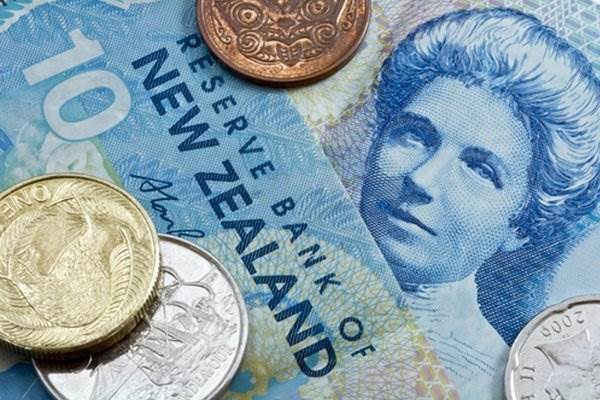 Last week, the New Zealand dollar gained 1.09 percent against the US dollar, recovering from the previous week's losses.
Last week, the New Zealand dollar gained 1.09 percent against the US dollar, recovering from the previous week's losses.
There are two main reasons why the New Zealand dollar advanced last week. On one hand, the US dollar's relatively bad performance at the end of the week helped to boost the Kiwi, on the other, the good news about the Chinese economy, as well as the positive data regarding the coronavirus pandemic in New Zealand aided a more optimistic approach towards this currency.
The US dollar had, in general, a good week, gaining 0.67 percent against a basket of currencies. Nevertheless, on Tuesday it abandoned a three-day winning streak and fell, mostly due to rumors about the Federal Reserve bringing down its benchmark cash rate to zero, and the loss of appetite for safe-haven assets, as market actors have now better expectations regarding the future performance of the economy since different countries are re-opening after a couple of months of putting restrictions over their populations as an attempt to stop the advance of the Covid-19 pandemic.
On Thursday, markets began pricing in the possibility of the Fed setting its benchmark cash rate at zero, a move that according to some analysts is nonsensical and could worsen the situation.
“Negative rates have not helped the Japanese economy, they haven’t helped the European economy,” explained an analyst at JPMorgan Asset Management, “All they do is clog up the banking system, make it more difficult for everybody to operate,” he added, highlighting that if the government wants to stimulate the economy it needs to hand out cash to consumers and businesses.
Adding to this, falling yields in the 2-year US Treasury also hindered the advance of the greenback, though slightly better than expected non-farm payrolls data cushioned the fall of this currency. Non-farm payrolls fell by 20.5 million in April, while the unemployment rate advanced to 14.7 percent. Analysts were expecting a 22 million fall, so when the markets learned the actual figure they had already priced their grim expectations.
The expectations about the economy are also improving, as several governments are announcing their plans to restart their economies, aiding the appetite for riskier assets. The New Zealand government already began to lift up the restrictions progressively, and it is even talking about creating a travel bubble with Australia, being one of the less affected countries by the pandemic, with 1,494 reported infections and a death toll of 21.
As for China, markets learned on Thursday that Chinese exports performed better than expected, suggesting a surge in China's economic activity. The Chinese government reported that exports rose by 3.5 percent, a significantly higher figure than the 15.1percent drop that analysts foresaw. This more or less helped to fade the tensions that were fed by the recent escalation of the trade conflict this country has with the United States. It must be remarked that China is one of New Zealand's main trade partners, so it makes sense the Kiwi reacts positively when the markets learn any good news coming from China.
The New Zealand dollar has been repeatedly called a "proxy for risk" as of lately, which means that when there is an upbeat sentiment in the markets it will tend to appreciate. Conversely, when risk aversion dominates the marketplace, traders will tend to run from this currency towards assets they perceive as "safer".
It would make sense to see this currency keep surging in the future, especially since the market mood has improved in the last weeks. Nevertheless, as many have already highlighted, economic recovery may not turn out as we expect it to be, so it wouldn't be wise to discard the surge of risk aversion.
